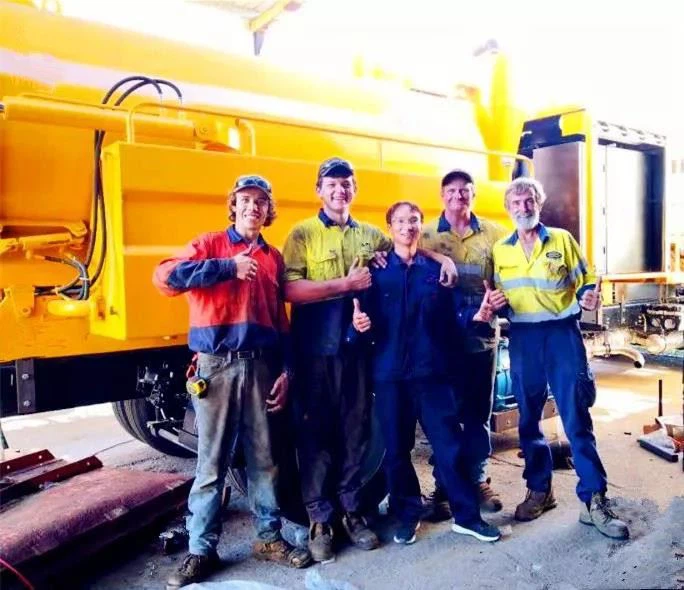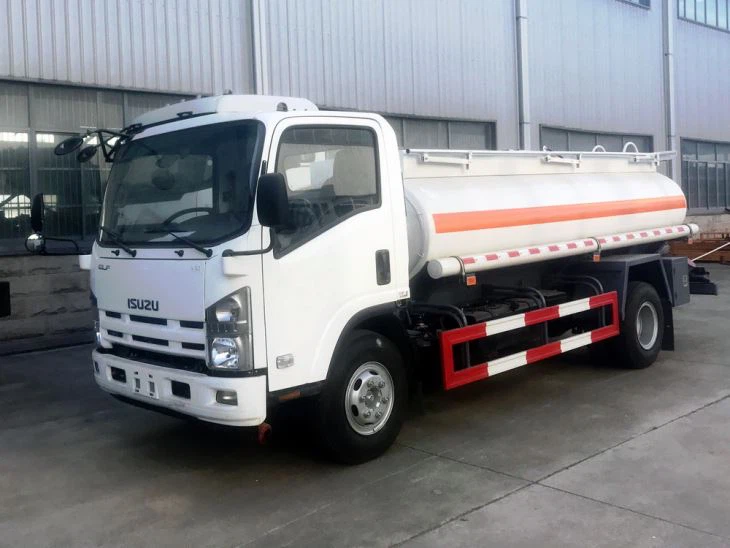Vac Truck Sale: Your Ultimate Guide to Buying the Right Vacuum Truck

Understanding the ins and outs of purchasing a vacuum truck is essential for businesses involved in industrial cleaning, sewage, and waste management. This comprehensive article will explore everything you need to know about vac truck sales, including the types, factors to consider, pricing, and tips for making the right choice for your needs.
What is a Vacuum Truck?
A vacuum truck is a specialized vehicle designed to suck up liquid waste, sludge, and debris from various locations. These trucks are equipped with powerful suction systems and are generally used in industries such as sanitation, construction, and environmental services. They can handle a variety of waste types, including sewage, water, and hazardous materials.
How Does a Vacuum Truck Work?
The operation of a vacuum truck is straightforward:
- The truck is equipped with a vacuum pump connected to a large storage tank.
- The vacuum pump creates a low-pressure area, allowing waste to be sucked into the tank through a hose.
- Once the tank is full, the vacuum truck can transport the contents to a designated disposal site.
Types of Vacuum Trucks
When considering a vac truck sale, it’s crucial to know the types available. Here are the most common types:

1. Combination Vacuum Trucks
Combination vacuum trucks are versatile vehicles that combine vacuum capabilities with high-pressure water jetting systems. They are ideal for cleaning sewers, drain lines, and grease traps efficiently.
2. Liquid Waste Vacuum Trucks
These trucks are designed to handle liquids, such as sewage or industrial wastewater. They generally have larger tanks to accommodate the higher volumes of liquid waste.
3. Dry Vacuum Trucks
Dry vacuum trucks are used for picking up heavy debris, such as sand, gravel, or dry waste. They do not handle liquids and are commonly used in construction and excavation projects.
4. Hazardous Waste Vacuum Trucks
These are specialized vehicles built to transport hazardous materials safely. They are equipped with extra safety measures, such as explosion-proof motors and specific containment systems.
Factors to Consider When Buying a Vacuum Truck
Investing in a vacuum truck is a significant decision; several factors can impact your choice:
1. Purpose
Identify the primary use of the vacuum truck. Will it be used for liquid waste, dry waste, or a combination of both? Pinpointing the purpose will help narrow down your options.
2. Size and Capacity
Vacuum trucks come in various sizes, with tank capacities ranging from small (500 gallons) to large (over 5,000 gallons). Consider your typical workload and the scale of waste collection.
3. Pump Specifications
The pump’s specifications—such as horsepower and flow rate—are crucial for performance. Ensure that the pump aligns with your operational needs, especially if dealing with thick sludge or high-pressure cleaning tasks.
4. Engine Type and Performance
Check the engine type and fuel efficiency. Diesel engines are common, but some models may offer alternative fuel options. Evaluate their performance based on the tasks you’ll be undertaking.
5. Maintenance Requirements
Different models come with varying maintenance needs. Consider how much time and money you’re willing to invest in upkeep. Research models known for reliability and minimal maintenance.
6. Price and Financing Options

Vacuum trucks can be a significant investment. Prices typically range from $30,000 to over $150,000 based on size and capabilities. Explore financing options such as loans, leasing, or even financing through the dealer.
Where to Purchase Vacuum Trucks
Understanding the available purchasing options is vital for making an informed decision:
1. Direct from Manufacturers
Buying directly from manufacturers ensures quality and offers customization options. Companies like Vac Truck Sales and Westech Environmental provide a range of models tailored to different needs.
2. Authorized Dealers
Authorized dealers often have varied stock and can provide insights into your specific needs. Additionally, they may offer warranties and service agreements.
3. Online Marketplace
Websites such as eBay and MachineryTrader list used vacuum trucks, sometimes at competitive prices. Verify the seller’s reliability and request a thorough inspection report.
4. Auctions
Industrial equipment auctions can be a good place to find cost-effective deals. Attend auctions focused on heavy equipment to find vacuum trucks listed at lower prices.
New vs. Used Vacuum Trucks
Choosing between new and used vacuum trucks depends on your budget and operational objectives:
Buying New
Pros:
- Latest technology and features.
- Customizations available based on your specifications.
- Warranty coverage for peace of mind.
Cons:
- Higher upfront cost.
- Depreciation occurs immediately once it’s purchased.
Buying Used
Pros:
- Lower purchase price.
- Less depreciation value.
Cons:
- Potential hidden issues with maintenance history.
- May have outdated technology.
Tips for a Successful Vac Truck Purchase
Follow these practical tips to ensure the success of your purchase:
1. Conduct Detailed Research
Research different brands and models. Look for user reviews, expert recommendations, and industry reputation to make an informed choice.
2. Inspect the Vehicle Thoroughly
Whether buying new or used, inspect the vacuum truck meticulously. Check for any signs of wear and tear, leaks, or mechanical issues. Hiring an expert for an inspection can be beneficial.
3. Request a Test Drive
If possible, take the truck for a test drive to assess its handling, power, and overall performance. This firsthand experience can reveal strengths and weaknesses you may not have considered.
4. Negotiate Prices
Don’t hesitate to negotiate the price. Often, sellers have a margin for negotiation, especially in used vehicle sales.
5. Review Warranty and Service Agreements
If buying new, ensure that you thoroughly understand the warranty coverage. For used trucks, check if there are service agreements available that could save you money in maintenance.
Understanding Maintenance and Care for Vacuum Trucks
Caring for your vacuum truck is essential for longevity and performance:
1. Regular Inspections
Conduct routine inspections for leaks, mechanical issues, and the condition of hoses and seals.
2. Clean the Tank Regularly
A clean tank prevents residual waste from affecting future jobs. Regular cleaning also extends the life of the tank and reduces odors.
3. Follow Maintenance Schedule
Follow the manufacturer’s maintenance schedule for oil changes, filter replacements, and pump inspections to keep the truck in prime condition.
Cost of Vacuum Trucks
The cost of vacuum trucks can vary widely based on multiple factors:
1. Size
Smaller trucks are generally less expensive, with costs starting around $30,000. Larger models can exceed $150,000.
2. Age and Condition
A used vacuum truck may range from $10,000 to $100,000 depending on its age and condition. Vehicles that have been well-maintained will cost more.
3. Features and Customizations
Additional features such as automated systems, specialized tanks, and advanced pumps can increase the price significantly.
4. Location
Prices may vary based on the region and local demand, so it’s essential to compare prices across different areas.
| Truck Type | Price Range |
|---|---|
| New Combination Vacuum Truck | $100,000 – $150,000 |
| New Liquid Waste Vacuum Truck | $75,000 – $120,000 |
| Used Dry Vacuum Truck | $10,000 – $40,000 |
FAQs About Vacuum Truck Sales
1. What is the average lifespan of a vacuum truck?
The average lifespan of a vacuum truck is around 10-15 years, depending on usage and maintenance.
2. How do I know if I’m getting a fair price on a used vacuum truck?
Research market prices, check comparable models, and consider obtaining a vehicle history report to evaluate the truck’s value.
3. Can I customize a vacuum truck?

Yes, most manufacturers and dealers offer customization options to fit specific operational needs.
4. Are there any special licensing requirements for driving a vacuum truck?
Yes, in many regions, operating a vacuum truck requires a commercial driver’s license (CDL) due to its weight and specialized equipment.
5. What types of waste can a vacuum truck handle?
Vacuum trucks can manage a variety of waste types, including liquid waste, sludge, dry debris, and hazardous materials.
6. Is financing available for purchasing a vacuum truck?
Yes, various financing options exist, including loans, leasing arrangements, and vendor financing through manufacturers or dealers.
